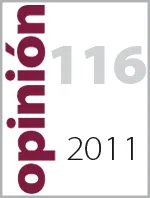A European Democracy malaise: Macedonia as a symptom

Jordi Vaquer i Fanés,
Director of CIDOB
25 May 2011 / Opinión CIDOB, n.º 116
On 9 May 2011, A1, an independent TV station, revealed that the governing party in Macedonia, VMRO – DPMNE, has been pressuring public officers into producing lists of trusted supporters with names and contact details in preparation for the 5 June national election. Apparently, each civil servant has had to provide 15 names and each middle manager 30. The A1 TV-produced documentary seems to prove the existence of the lists and the orders from the party, and it reveals extended practices of political patronage inside the administration such as granting a work place transfer for a teacher, providing access to fertility treatment or offering a job - in exchange for party loyalty.
This abuse of administrative structures and resources is a scandal that the government in Skopje seems to be able to weather. Public evidence of such crude abuse of state power by a governing party would trigger its resignation in most of Western Europe. However, such practices are seen as routine in many countries, some of them in Europe itself. In fact, abuse of administrative technology in election processes is one of the defining features of Putin-style ‘sovereign democracy’ of the kind that prevails in Belarus, Armenia or Azerbaijan. In Russia, for instance, it is not uncommon for workers in a public institution (say, a hospital) to be called extraordinarily to their work place on an election Sunday, where their voting right is diligently ensured by the provision of a mobile ballot box under the controlling eye of the supervisor.
This is not the first time that allegations about abuse of public administration in election procedures have been made in Macedonia; but the recent revelations provide further proof of the descent down the slippery authoritarian slope for the fragile Balkan democracy. Macedonia is hardly the only country in the region to experience the deterioration of its young democracy. The dwindling legitimacy of elections in Albania, the shaky statehood in Kosovo and Bosnia and Herzegovina, the radical threat in Serbia or the corruption that is a feature of virtually all Western Balkan political systems show disturbing signs of persisting and, alarmingly, of worsening.
If there is one part of Europe where the EU is well positioned to make a difference in consolidating democracy, it is precisely the Balkans. A lot has been done already, and the European Commission is making a sustained effort to bring transitions back on track wherever they risk derailing. The same can hardly be said about some EU member states. Many member states are guilty of neglect at the very least, and even of actively undermining EU credibility. Sometimes they do it to gain minor political concessions; mostly they act this way in order to court the favour of Balkan governments for purely mercantile calculations. This leniency with authoritarian tendencies on the part of many EU member states could be interpreted as a reflection of weakening commitment to some fundamental principles in their own countries.
The EU, despite its battery of enlargement and neighbourhood instruments, is less and less well placed to be the anchor for democratisation it was only a few years ago. Part of the problem is that some of the abuses that can be seen in enlargement and neighbourhood countries are not alien to the EU member states. Admittedly, it would be frivolous to compare the nationalist populist movements rising in Scandinavia to the Serbian radicals, or the flirting of some Central European countries like Hungary and Slovakia with restrictive press laws with the state of freedom of speech in countries such as Russia or Belarus. It is also excessive to equate the expressions of dissatisfaction with the political system and establishment in Greece or Spain to the colour revolutions (or to the Arab uprisings, for that matter). But anti-democratic tendencies, such as xenophobic populism, corruption or the erosion of the checks and balances systems, are taking their toll on the health of democracy in most EU member states and weakening the prestige that has been at the base of the EU‘s soft, but hugely effective transformational power. And this holds as true for a founding member like Italy as it does for the latest arrivals in the club, Romania and Bulgaria.
A chilly authoritarian and populist wind is filtering through the cracks into the EU. First Russia, then Ukraine and other countries of the Eastern partnership, and now even enlargement countries, including Turkey, are experiencing stagnation, if not steady decline, in their transition to democracy. The worrying signs of a comparable process inside the EU have accelerated with the economic crisis. An epidemic of populism and nationalistic discourse is entering mainstream politics in the member states. The dire economic situation in a number of European countries further deepens the gap between governments and citizens, a gap that extremist and populist movements are quick to fill, but that other forces are trying to reduce through direct political action.
A democratic retreat is in process in Europe. Some citizens have identified it and have mobilized, from Iceland to the squares of Spain’s cities. Others may be misled to thinking that isolating their own country and disengaging with the rest of the world will preserve their prosperity and their democratic political culture. As they follow the dramatic fight for democracy in the Arab countries on their screens, many may forget that democracy in Europe can never be taken for granted. What happens in tiny Macedonia is not an obscure concern for Balkan specialists; it is part of the same big story. A story of a painfully built democracy that needs constant improving and, on occasions, vigorous defending.
Jordi Vaquer i Fanés,
Director of CIDOB